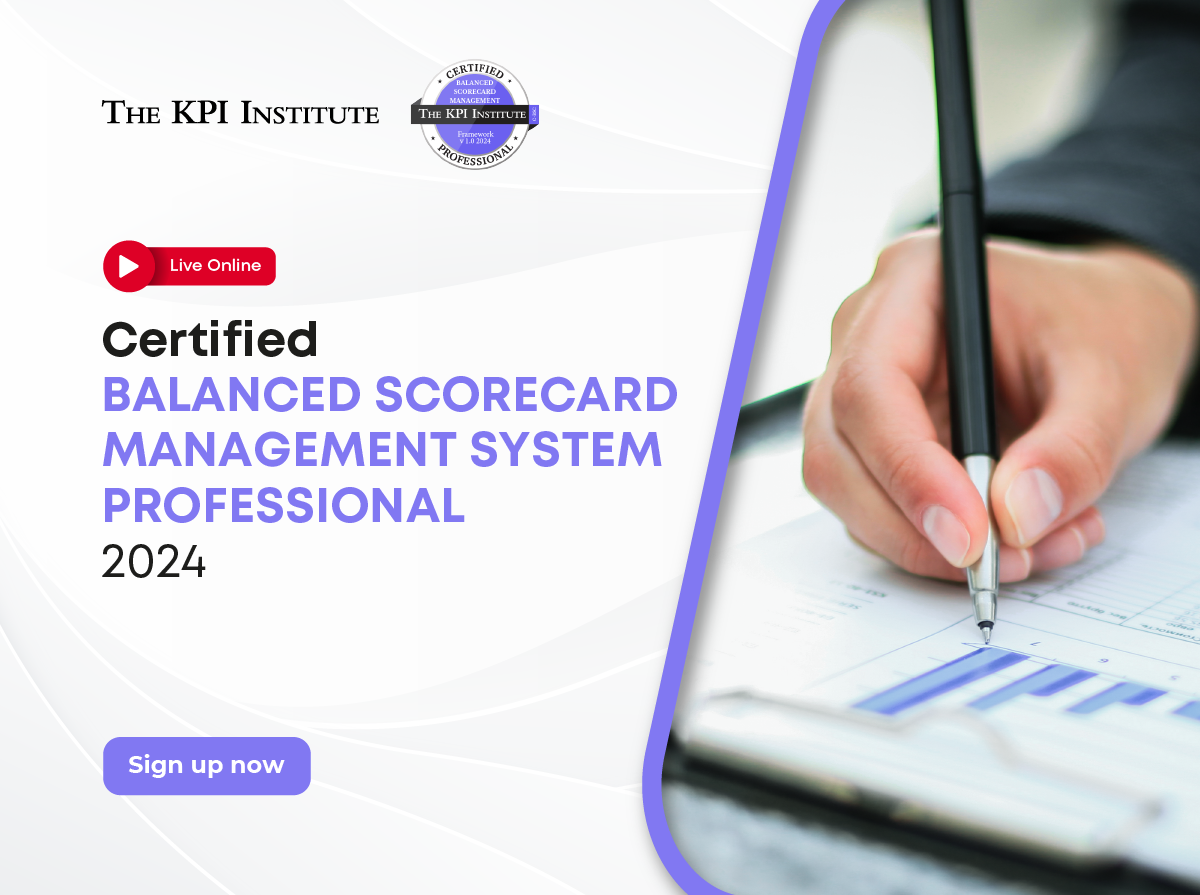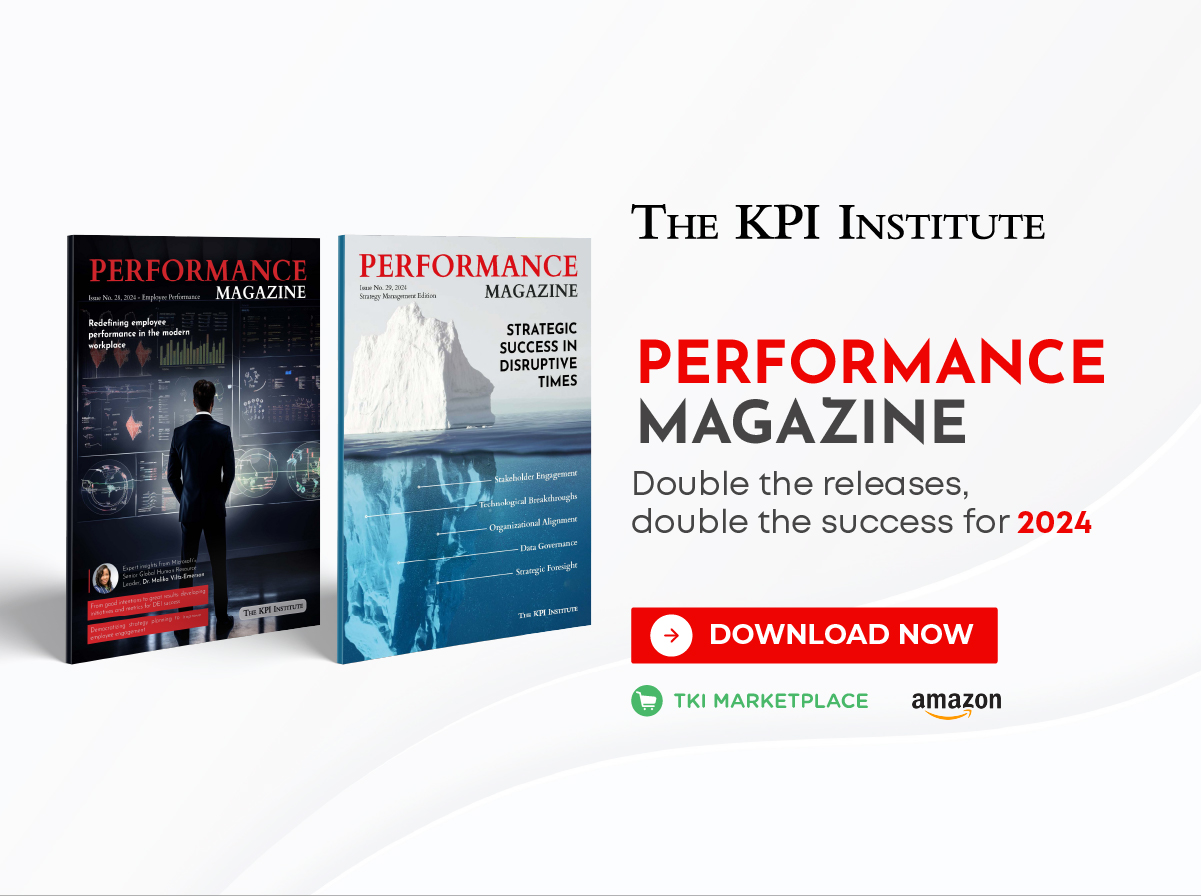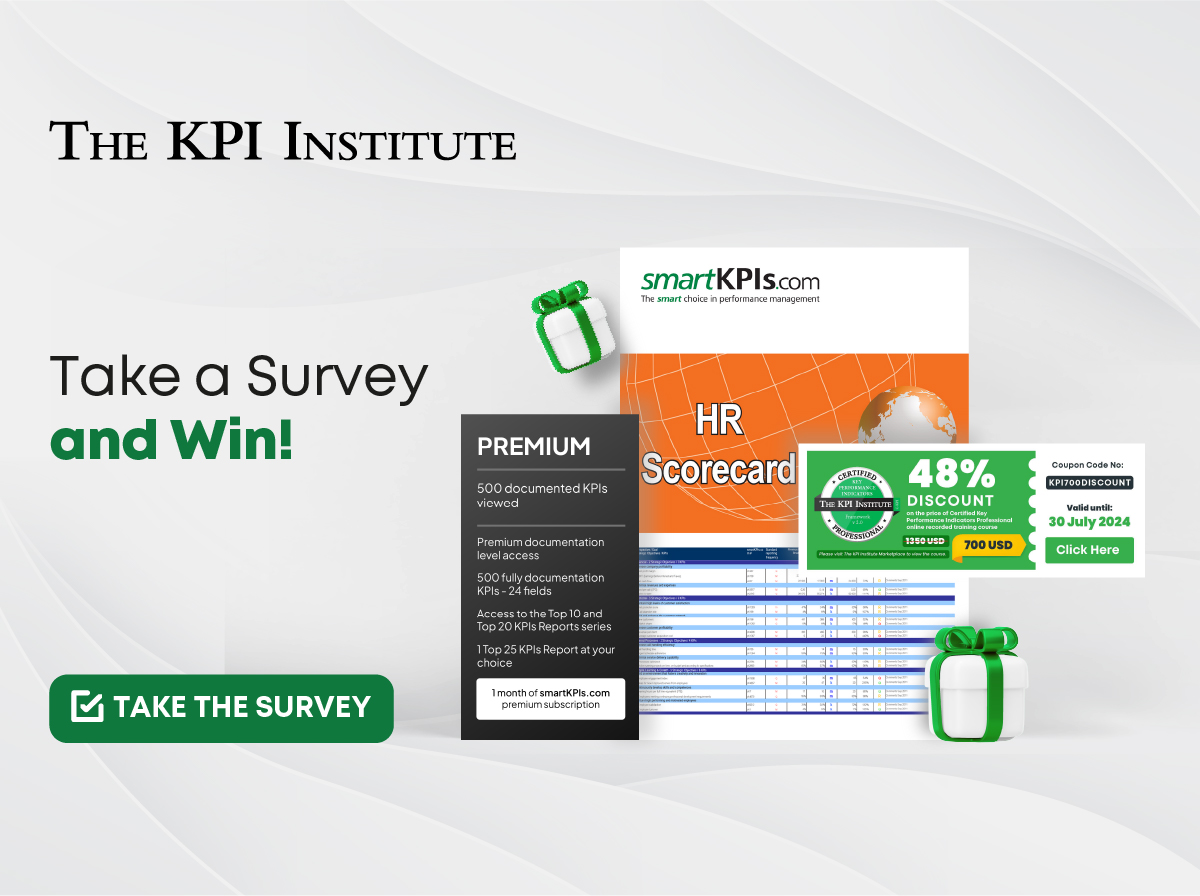Certified Benchmarking Professional
Through benchmarking, an organization is capable of comparing its own performance against that of its rivals, narrowing down on strengths, weaknesses, as well as specific advantages that they may be able to leverage in the head to head competition.
As the famous Daft Punk song goes, all successful businesses nowadays are looking for ways in which they can become better at gauging their competitors, faster at adapting to industry or market changes and stronger when it comes to dealing with hardship and unfavourable conditions. This is where benchmarking comes into play as the premiere method of achieving all these plans and more, given that it enables organizations to highlight pressure points – either their own or their rivals’, with pinpoint accuracy.
Since striving for the best possible results has always been our mantra, here at The KPI Institute we’ve developed the Certified Benchmarking Professional course, in order to help those who wish to share it. Whether you’re an expert in delivery & support functions, top/middle/lower management or simply a professional interested in benchmarking practices, the C-B course endorses you for both your knowledge in improving performance through best practices, as well as your ability to implement benchmarking strategies in your own organization.
Learning objectives
- Align benchmarking objectives with the organizational strategy
- Design a benchmarking plan for your organization
- Understand the fundamentals of benchmarking methodologies
- Assess performance gaps according to benchmarking data
- Select the relevant benchmarks and establish a monitoring process
Benchmarking’s methodological uniqueness is represented by the identification of those processes that lead to superior performance, followed by the analysis of the best practices which lie behind that level of success.
In order to put together a successful benchmarking study, professionals should not only become familiar with the best way to select those variables which will be measured, but also with the most appropriate method of determining the comparison compatibility of your selected measurable processes, allocating resources accordingly.
This is why our course focuses on ensuring you’ll have a solid understand of the basics of benchmarking, as well as how the entire process can then be integrated into existing structures with your organizational framework, from linking it to the overarching business strategy, to performance objectives, goals, KPIs and initiatives.
By attending our Certified Benchmarking Professional training session, attendees will be learning all there is about formal vs informal benchmarking, performance, process and strategic benchmarking, the APQC methodology, the Camp R.C. model, the TRADE methodology, as well as scoping, data collection, validation & adjustment, in addition to tackling a few legal and ethical issues surrounding benchmarking.
To provide you with a brief overview of the course, we’ve dismantled it into 5 modules:
1.Understanding the benchmarking concept and its advantages
- About the benchmarking concept
- The importance and use of benchmarking
- Benchmarking types
2.Becoming familiar with the general methodology
- What is being benchmarked?
- Against what is an organization benchmarked?
- How is benchmarking used?
3.Generating a benchmarking plan
- Design the preparation phase
- Establish the comparison phase
- Steps to follow in the analysis phase
4.Understanding data collection and analysis
- Identify data sources
- Analyze data
5.Improving performance
- Generate value from the information gathered
- Improve your organization’s performance
- Monitor the organization’s performance
Benchmarking is the process through which you take an overview of a situation, develop a plan for improvement, establish a data governance team that collections and analyzes information, out of which you will ultimately generate value for your company.
If you’re still wondering whether benchmarking is worth your time or not, here are 8 key advantages that the biggest companies around the world give when asked why they make use of this process:
- IIt allows you to measure and company your processes against those of another company’s, allowing you to discover inefficiency at the operational level.
- This then enables you to discover performance gaps that you may not otherwise be able to find.
- Through benchmarking, you can incorporate a leading company’s processes and practices into your own flow, to increase results and slowly close the gap.
- I Benchmarking allows perspicacious individuals to improve resource prioritization, through better future goal setting.
- For those companies unsure of their position within the market, the process of benchmarking offers you the possibility of identifying what your current state is in your industry, as well as how you would compare yourself to others, if the industry was different in any way.
- In many organizations, the introduction of performance measures feels like a dictator spouting orders around. By making use of benchmarks, you now have an argumentum ad verecundiam to introduce said measures.
- The process of benchmarking ensures a 24/7 monitoring of the overall organizational performance.
- Benchmarking equips you with the necessary knowledge to set targets in alignment with the organizational strategies that are currently in place. Moreover, because it places a heavy emphasis on data & analysis, it allows for improved task prioritization.
Whether you feel that benchmarking is useful or useless, the point of the matter is that many organizations around the world have seen leaps of improvement once they’ve decided that they should integrate at least some aspects related to this process. It should come as no surprise that the biggest users of benchmarking are actually the leading actors in every industry, as they have an incentive to make use of the process – they want to stay at the top.
For those looking to become challengers and eventually replace the dominant status-quo, remember that better results come one step at a time, which is exactly how we’ve structured our C-B course. We’ll be going from the basics, all the way to advanced practical exercises, where we make use of Motorola, AT&T, IBM, Xerox and TKI’s own methodology, in order to find what works best for your organization.







